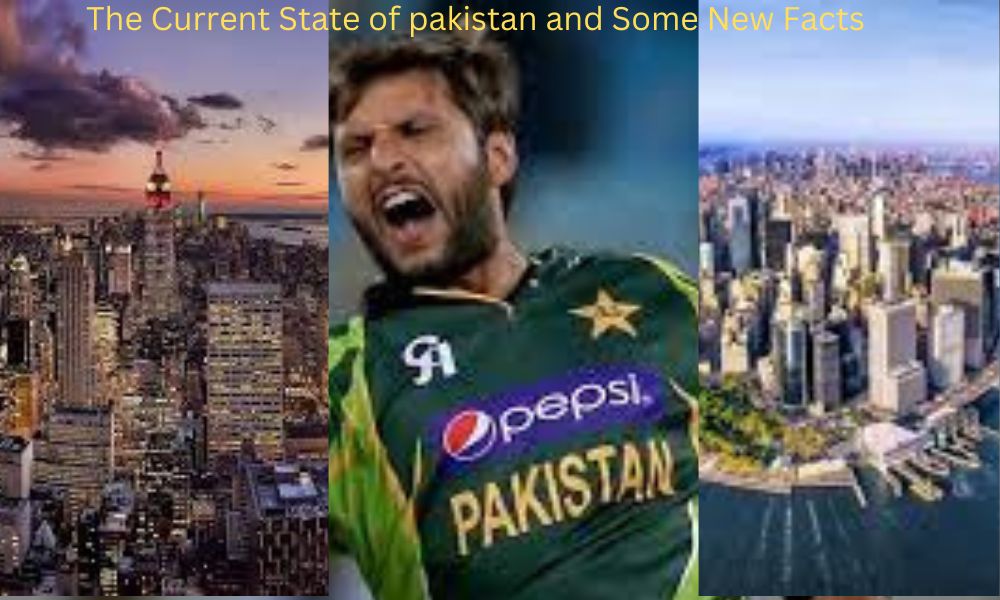The Current State of pakistan and Some New Facts
Pakistan, a South Asian country with a population of over 220 million, has been going through significant changes in recent years. From political instability and economic challenges to social and security concerns, the current state of Pakistan is a complex topic that requires a nuanced analysis. In this blog post, we will explore some new facts about the current state of Pakistan and what they might mean for the country’s future.
One of the most significant recent developments in Pakistan is the country’s growing economic challenges. Despite some progress in recent years, Pakistan’s economy remains fragile, with high levels of inflation and a growing trade deficit. The COVID-19 pandemic has exacerbated these challenges, with the country experiencing a sharp decline in economic activity and a rise in unemployment. The government has taken some steps to address these challenges, including seeking assistance from international financial institutions such as the International Monetary Fund (IMF) and introducing economic reforms, but more needs to be done to address the structural challenges facing Pakistan’s economy.
 Another new fact about the current state of Pakistan is the country’s growing political instability. Pakistan has a history of political turmoil, with frequent changes of government and a significant military influence in politics. The recent ouster of Prime Minister Nawaz Sharif and the ongoing corruption trial against him and his family members have further heightened political tensions. The opposition parties have accused the government of political victimization, while the ruling party claims to be cracking down on corruption. The upcoming 2023 general elections are likely to be closely contested, and the outcome could have significant implications for Pakistan’s political stability.
Another new fact about the current state of Pakistan is the country’s growing political instability. Pakistan has a history of political turmoil, with frequent changes of government and a significant military influence in politics. The recent ouster of Prime Minister Nawaz Sharif and the ongoing corruption trial against him and his family members have further heightened political tensions. The opposition parties have accused the government of political victimization, while the ruling party claims to be cracking down on corruption. The upcoming 2023 general elections are likely to be closely contested, and the outcome could have significant implications for Pakistan’s political stability.
In addition to economic and political challenges, Pakistan also faces significant social and security concerns. The country has been grappling with a growing extremist threat, with militant groups operating in various parts of the country. The government has taken some steps to combat terrorism, including launching military operations against militant groups and increasing cooperation with international partners. However, the threat remains significant, and more needs to be done to address the root causes of extremism in the country.
Pakistan is also facing significant social challenges, including gender inequality, poverty, and illiteracy. According to the World Bank, over 24% of Pakistanis live below the poverty line, and the country has one of the lowest literacy rates in the world. Women in Pakistan face significant barriers to education and employment, and gender-based violence is a pervasive problem.
Despite these challenges, there are also reasons for hope in the current state of Pakistan. The government has taken some steps to address the country’s economic challenges, and there are signs of progress in some areas, such as the construction sector. The government has also launched several initiatives aimed at improving social indicators, such as the Ehsaas program, which provides financial assistance to the poor and vulnerable.
 In addition, Pakistan has a young and dynamic population, which could be a significant asset for the country’s future. The country’s youth are increasingly educated and tech-savvy, and there is a growing entrepreneurial spirit among young Pakistanis. The government and the private sector are investing in the country’s tech sector, which could help to drive economic growth and create jobs for young Pakistanis.
In addition, Pakistan has a young and dynamic population, which could be a significant asset for the country’s future. The country’s youth are increasingly educated and tech-savvy, and there is a growing entrepreneurial spirit among young Pakistanis. The government and the private sector are investing in the country’s tech sector, which could help to drive economic growth and create jobs for young Pakistanis.
In conclusion, the current state of Pakistan is a complex mix of economic, political, social, and security challenges. However, there are also reasons for hope, including the government’s efforts to address these challenges and the country’s young and dynamic population. Pakistan has the potential to become a prosperous and stable democracy, but it will require sustained efforts by the government, civil society, and the private sector to address the country’s significant challenges and build a brighter future for all Pakistanis.
The Current State of America and Some New Facts

